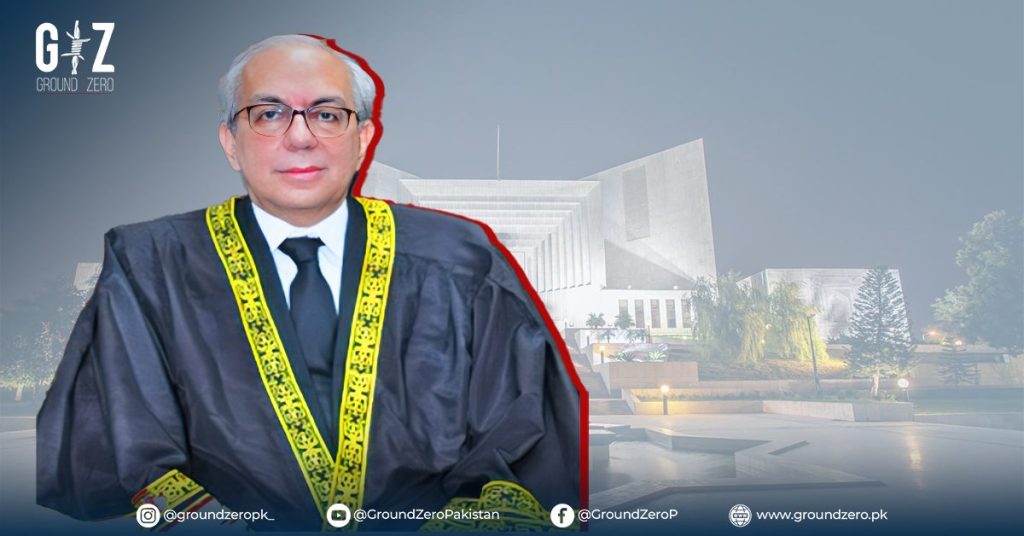Justice Munib Akhtar Protests Supreme Court Bench Handling Article 63-A Review
Justice Munib Akhtar has voiced his protest against the Supreme Court’s decision to proceed with the review petition on Article 63-A without him. In a letter to the court, Justice Munib raised concerns about the four-member bench’s ability to conduct hearings when a five-member bench had originally been constituted.
Justice Munib’s Protest
In his second letter, Justice Munib Akhtar explained his absence from the hearing, stating he could not sit on a bench formed by the Supreme Court’s Practice and Procedure Committee. Despite his unavailability, the bench, led by Chief Justice Qazi Faez Isa, proceeded with the hearing, a decision Munib protested. He emphasized that the case should have been heard by a full five-member bench.
Justice Munib also pointed out that his absence should not be considered a recusal and that he had not resigned from the bench. His letter expressed concern that a four-member bench heard the matter, which he argued was legally improper. He noted that the original case was assigned to a five-member bench, and proceeding with four members raised questions about the legitimacy of the order.
For more on the legal review of Article 63-A, check out our opinion.
Article 63-A and the Supreme Court Review
The Supreme Court is currently reviewing its May 2022 decision on Article 63-A. The original verdict ruled that dissident lawmakers could not cast votes contrary to party directives. The Supreme Court Bar Association (SCBA) has challenged this decision, arguing that while dissidents can be de-seated, their votes should still count.
The newly formed bench hearing the case has raised concerns among the legal community, especially after Justice Munib’s refusal to join the proceedings. The outcome of this review could significantly impact parliamentary procedures and party discipline in Pakistan.
For further details on the constitutional amendments and their implications, explore this legal analysis.


